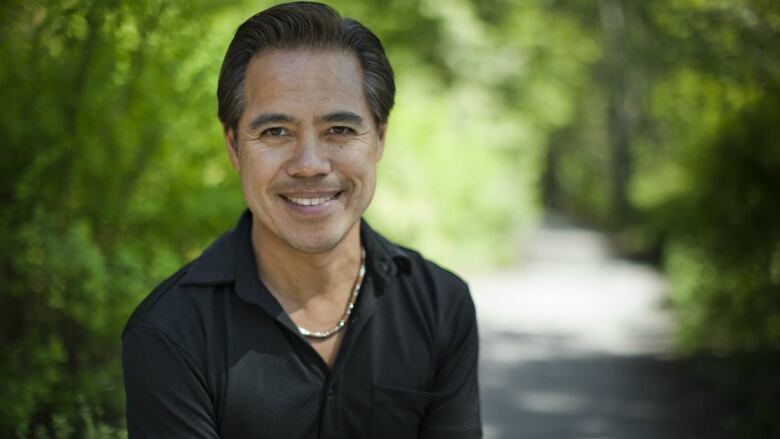Health system should recognize intergenerational trauma, expert says
Trauma passed on through the decades can lead to negative health outcomes

A leading authority on First Nations health is calling on healthcare practitioners to recognize intergenerational trauma when treating Indigenous patients.
Dr. Evan Adams is the chief medical officer for the First Nations Health Authority in B.C. He told the's CBC's The Early Edition the historic oppression faced by Indigenous people can linger as trauma in subsequent generations.
"Trauma really is a wound," he said. "Often, trauma is psychic in nature, not physical ... and it can be an experience that is transmitted through family over a long period of time so it can take a long time to manifest and a long time to understand."
For example, victims of residential schools might pass on their general distrust of the system onto their families, Adams explained.
"Because of their expectation from previous trauma, [they believe] this health care system is for someone else," he said.
Some patients might be reluctant to seek medical treatment. This can lead to late diagnosis, late or incomplete treatment or a distrust of medication and medical advice.
Helping practitioners help others
For doctors and other healthcare practitioners, the experience can be frustrating.
"They come away feeling like, 'Gosh, I want to work with everyone that comes through the door and they didn't believe me," he said.
Adams said he encourages practitioners to understand cultural safety and cultural humility. Cultural safety means workers respect patients regardless of their cultural origin, he said, and cultural humility means patients are treated as persons with thoughts and beliefs, "Not just a pneumonia case."
While some practitioners have grasped these concepts, Adams hopes his advocacy can help others consider these factors and ultimately provide better healthcare.
"If I can't speak to a patient in a way that will convince them to finish their course of antibiotics and come back so that I can make sure that they're well again then I've failed," he said.
Adams presents a webinar on intergenerational trauma Wednesday, Jan. 4, at 12 p.m. PT. You can participate by visiting www.fnha.ca.
With files from The Early Edition
To listen to the interview, click on the link labelled Dr. Evan Adams on international trauma and healthcare












_(720p).jpg)


 OFFICIAL HD MUSIC VIDEO.jpg)
.jpg)



























































































